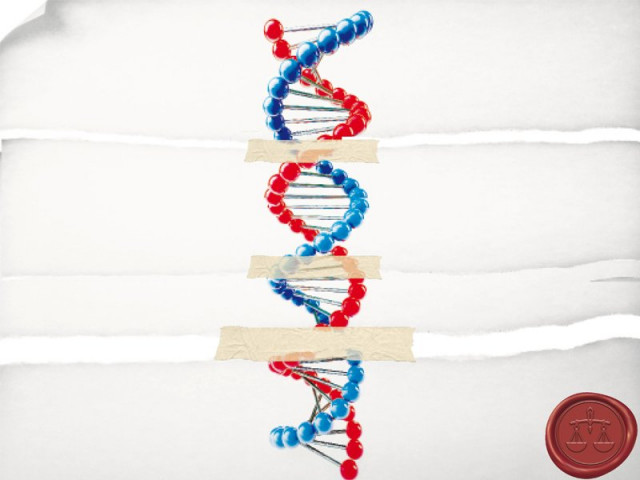Sindh to declare DNA findings as primary evidence in rape cases
Provincial assembly expected to pass bill at next session.

Provincial assembly expected to pass bill at next session. DESIGN: AMNA IQBAL
The private bill drafted by Pakistan Peoples Party MPA Sharmila Faruqi was introduced a few days ago but it has yet to see the light of the day. “The law is aimed at identifying the perpetrators of the offense and Sindh will be first province to pass it,” she said proudly. “The good thing is that DNA findings will be considered as primary evidence for the offense.” She mentioned the objection raised by the Council of Islamic Ideology, which has already announced that they would not accept DNA test findings as primary evidence. “Whether one accepts this [law] or not, we have put this provision in the law in accordance with the rules of admissibility under the Qanun-e- Shahadat Order 1984,” she pointed out, adding that the order has permitted the use of modern techniques rather than statements to be given by the four eyewitnesses in these cases.
According to the law, DNA testing for the rape survivors will be mandatory and the government has to establish forensic labs and collection centres with adequate facilities to collect DNA samples in every district of the province within 90 days of the law’s promulgation.
“In case a complaint is lodged, the DNA test from the rape survivor will be carried out within 12 hours by medical personnel,” the law states. “The relevant police authorities are bound to escort the rape victim to a hospital for forensic lab or a collection centre for medical examination and ensure that complete privacy is provided to the victim during this entire process.”
The law also lists punishments for officials found violating the DNA samples, contaminating or altering them. “In many cases, the police and medical officers are found delaying, destroying, altering, contaminating and tampering forensic evidence,” Faruqi said. “Whoever knowingly delays the DNA sample collection process or destroy it shall be punishable with imprisonment for three years term with Rs500,000 as fine.”
On the collection of DNA sample, the law says they will be collected using a ‘Rape Kit’ by a qualified medical personnel, who is familiar with the sample collection process. Meanwhile, the government shall take all necessary steps to ensure that rape kits are available in all government hospitals across the province soon after the law is passed. The law also grants privacy to the rape survivors. All investigations will be conducted by the police authorities. The medical examination will not be conducted in the presence of any member of the opposite sex, it said.
Welcome move
“We welcome this law because the DNA test findings will be the primary evidence in the judicial proceedings instead of three or four eyewitnesses, which is not possible to prove the offense,” said Sara Zaman, an activist of NGO War Against Rape. The resources needed to conduct DNA tests have also been a bottleneck as most of the victims cannot afford it, she pointed out. “There is a dire to need to enhance the capacity of medical staff to be engaged in DNA testing and develop the infrastructure at the district level,” she said. Faruqi pointed out that the government arranges the funds. “There is a provision in the law and the government will establish a Sindh DNA Testing Fund for the victims,” she promised, adding that all expenses relating to the collection of DNA samples and conducting the tests will be borne by the government through this fund.
Laying down the procedure
After the DNA testing law is passed, the victim of sexual assault will have to follow these steps:
• Report to the police
• The police will lodge the case and ensure that DNA testing of the rape survivor is carried out by the medical staff within 12 hours. The police will provide security to the survivor on his/her way to the hospital or the forensic lab.
• Medical experts collect DNA samples from the survivor, such as blood, tissue, fluid and hair samples. The DNA samples are also collected from the suspect in case of an arrest
• The DNA samples will be sent to a forensic lab
• After the findings, the charges will be framed by the court of law
Published in The Express Tribune, March 4th, 2014.


















COMMENTS
Comments are moderated and generally will be posted if they are on-topic and not abusive.
For more information, please see our Comments FAQ